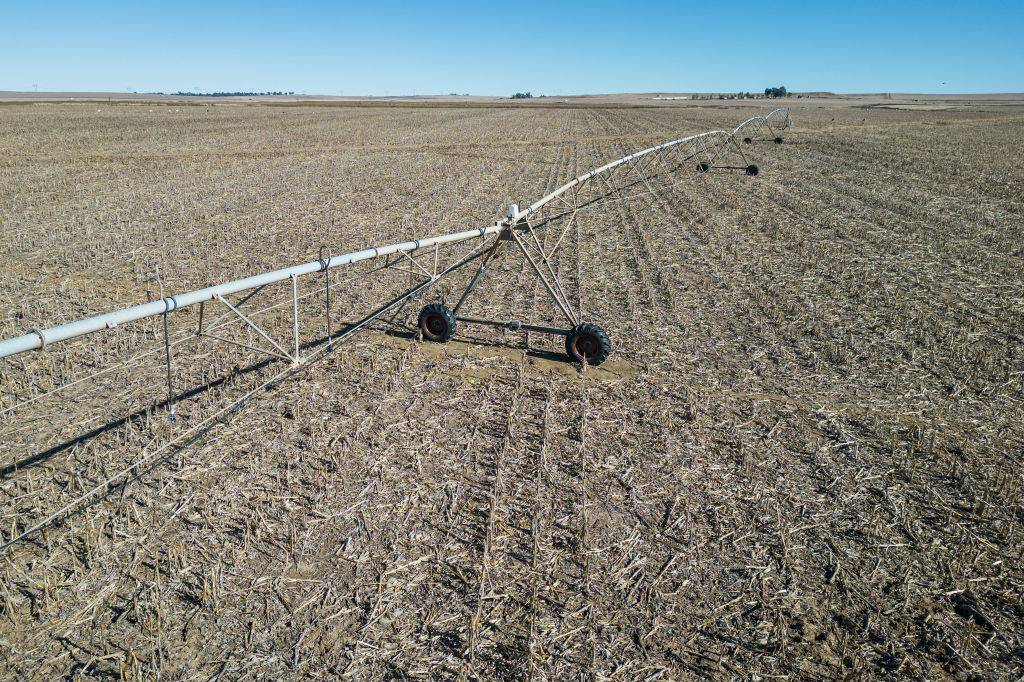South Africa’s low arrest and prosecution rate for farm murders and attacks, which has resulted in 95% of cases remaining unsolved over the past four years, is a microcosm of the police’s failure to investigate serious crimes and bring perpetrators to book.
Analysts commenting on the latest report by lobby group Afriforum released in Pretoria this week said the research reflects the wider problems bedevilling policing in the country.
The report analysed the 1 402 farm attack and murder incidents recorded by the South African Police Service (SAPS) from 2019 to 2022 and found there were convictions in just 66 cases.
The purpose of the report, which focused on crimes against rural dwellers including people living on farms and smallholdings, was to evaluate the arrest and conviction rates of suspects involved in farm attacks and murders in light of the police’ National Rural Safety Strategy (NRSS) which aims to fight these crimes.
According to the report, out of the 153 farm murder incidents recorded by SAPS for the period, there were convictions in only 24 cases, leaving 84% of the murders still unsolved, while arrests were made in just 22% (43) of the 1 249 farm attack cases.
So far, convictions have been made in 3% (42 cases) of farm attacks.
The report also shed light on the nationality of the perpetrators and found that most arrested farm attackers were South Africans (78%) followed by Zimbabweans (13%), Mozambicans (5%) and citizens of Lesotho (2%).
Suspects from Namibia, Tanzania and Malawi were also among those arrested in connection with the crimes. The majority of arrested murder suspects were also South Africans (86%), while others were Basotho (8%), Zimbabweans (4%), Mozambicans (1%) and those of unknown nationalities (1%).
“Unfortunately, the findings of this report indicate that there are significant delays and inefficiencies within the criminal justice system, leading to protracted court cases and a lack of closure for victims,” the report found.
“The low conviction rates and slow pace of the proceedings exacerbate the insecurity and fear among these communities, underscoring the urgent need for reform.”
This latest data on farm murders and farm attacks correlates directly with the national picture of the police’s declining overall crime-solving capabilities over the past ten years, said Institute for Security Studies head of justice and violence prevention, Gareth Newham.
“Basically, the ability of the police to solve murders has dropped by 50% since 2012. They were able to solve around 31% of dockets in 2012 and then they were only able solve 14.5% of murders last year. So, 85% of the more than 27 000 murders reported last year were not solved,” he said.
Newham added that the ability to solve highly organised crimes like aggravated robberies has also dropped by about 53% since 2012, which is also reflected in the crime-solving rates indicated in the farm attack data.
“There has been a massive decline in the ability of the police to investigate and solve crimes. The SAPS has this mindset that visible policing is the answer so they have always prioritised visible policing and have never taken crime detection and intelligence work seriously — the ability to understand the criminal networks involved and to link
them to crimes has never been the fundamental priority of the SAPS,” he said.
“The priority has always been to have large numbers of visible police officers because we are about 30 to 40 years behind the rest of world and international best practice — which knows this does not work and does nothing to reduce crime or improve security. What it does do is ensure that police can be mobilised to protect state assets.”
Newham said police officers, who are often first responders at the scene of a crime, lack the basic skills to secure the crime scene, gather evidence and identify potential witnesses.
“They are blundering around the crime scene and do not add value because they have not received adequate training.”
He blamed the SAPS’s poor investigation track record on “the leadership crisis that has been going on for years.”
“It would be rare to see policing organisations in middle-income countries with the resources we have to have the leadership watch capabilities decline year after year and do absolutely nothing to fix it.
“The president, the police minister, the national police commissioner are not doing anything to fix it and instead are saying, ‘We just need more resources.’ But it is not about resources, it’s about strategy and running an organisation that performs on the resources it has. It has been getting more resources, not less,” Newham added.
According to ISS research data the police budget swelled by 86.5% from R57.9 billion in 2011-12 to R108 billion in 2022-23, yet the number of overall arrests declined 12.5% from 1.6 million to 1.4 million arrests for the period.
A security specialist and founder of the online platform Paratus, Gideon Joubert, agreed that the research strongly correlates with national averages.
“The SAPS only solve around 19% of all murders annually, and the NPA successfully prosecutes approximately 75% of those, resulting in a successful prosecution rate for murder of under 15%. For rape it is less than 8%, and trio crimes (robbery at residential premises, robbery at non-residential premises, and car hijacking) it averages under 3%,” he said.
“The ability of the SAPS to solve crimes, arrest the perpetrators, and bring them to court with sufficient evidence for prosecution is woeful at best.”
He added that motives for farm attacks are varied and numerous.
“Isolated farms, especially when the residents are elderly, present lucrative potential targets for violent criminals. They definitely present significantly greater vulnerabilities than those of suburban residents, and these are readily exploited by criminals,” Joubert said.
“There is, however, a definite element of extreme sadism present in a notable number of farm attacks that is absent from the vast majority of house and business robberies. This indicates that there is certainly another motive present aside from mere resource predation.
“Basic crime intelligence gathering would massively contribute to preventing and solving farm attacks, and it baffles me why this is not being done.”
Institute of Race Relations researcher Marius Roodt said the research into the investigation and prosecution of farm attacks is “a microcosm of the SAPS’s broader investigations and seems to reflect diminished organisational and investigative capacity of the SAPS”.
“This is symptomatic of the SAPS’s capacity problems. From what I have seen, the rate at which murders are solved more broadly speaking in South Africa is similar to that of farm murders, with the vast majority of murders in SA, whether on farms or elsewhere, remaining unsolved,” he said.
He added that farm attacks are reflective of the broader issues of South African society, with some farm attacks possibly being motivated by “simple robbery”.
“South Africa is also an extremely violent society — on some measures SA is now the third-most murderous society on Earth, and farm murders are also reflective of that. There may be a political element in some farm murders but it is difficult to say this categorically,” he said.
The SAPS is facing broad problems “which affect all South Africans, not just those in rural areas”, Roodt said, adding that the police service “has been weakened and weakening for years, and we have seen crime rates go up, across the board, not just in rural SA or on farms”.
“Without a holistic solution the security situation will remain fraught in rural SA, but this is also the case in our cities and towns.”





















Discussion about this post